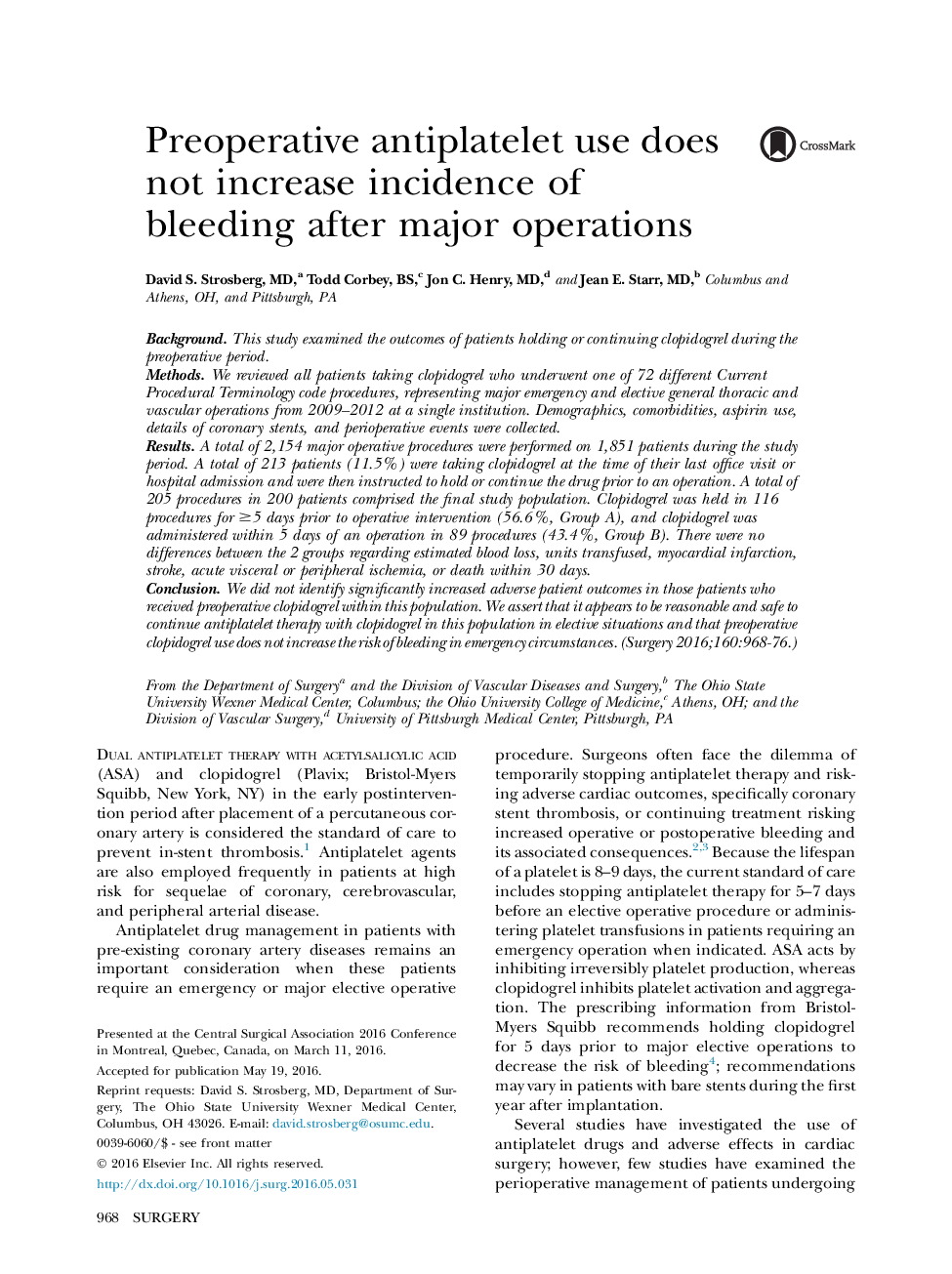| Article ID | Journal | Published Year | Pages | File Type |
|---|---|---|---|---|
| 4306362 | Surgery | 2016 | 9 Pages |
BackgroundThis study examined the outcomes of patients holding or continuing clopidogrel during the preoperative period.MethodsWe reviewed all patients taking clopidogrel who underwent one of 72 different Current Procedural Terminology code procedures, representing major emergency and elective general thoracic and vascular operations from 2009–2012 at a single institution. Demographics, comorbidities, aspirin use, details of coronary stents, and perioperative events were collected.ResultsA total of 2,154 major operative procedures were performed on 1,851 patients during the study period. A total of 213 patients (11.5%) were taking clopidogrel at the time of their last office visit or hospital admission and were then instructed to hold or continue the drug prior to an operation. A total of 205 procedures in 200 patients comprised the final study population. Clopidogrel was held in 116 procedures for ≥5 days prior to operative intervention (56.6%, Group A), and clopidogrel was administered within 5 days of an operation in 89 procedures (43.4%, Group B). There were no differences between the 2 groups regarding estimated blood loss, units transfused, myocardial infarction, stroke, acute visceral or peripheral ischemia, or death within 30 days.ConclusionWe did not identify significantly increased adverse patient outcomes in those patients who received preoperative clopidogrel within this population. We assert that it appears to be reasonable and safe to continue antiplatelet therapy with clopidogrel in this population in elective situations and that preoperative clopidogrel use does not increase the risk of bleeding in emergency circumstances.
